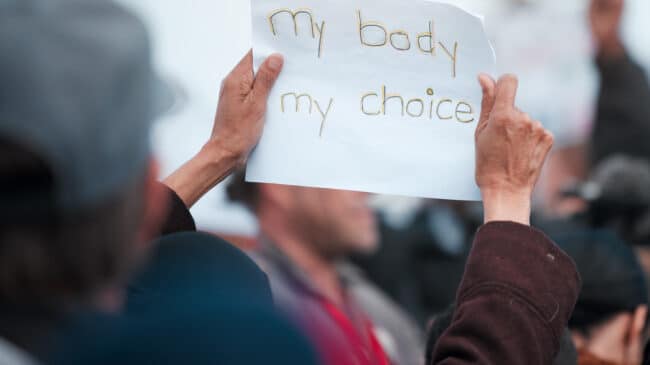Summary
Missouri’s Amendment 3 would add language to the state constitution protecting the right to reproductive freedom, defined as:
“[T]he right to make and carry out decisions about all matters relating to reproductive health care, including but not limited to prenatal care, childbirth, postpartum care, birth control, abortion care, miscarriage care, and respectful birthing conditions.”
The Amendment also allows the state legislature to regulate abortion after fetal viability. Abortion in Missouri is currently banned with exceptions such as procedures necessary for the health or life of the mother. The current law went into effect in June 2022 in the wake of the U.S. Supreme Court’s overturning of Roe v. Wade.
Fiscal Impact
The official ballot title contains the statement:
State governmental entities estimate no costs or savings, but unknown impact. Local governmental entities estimate costs of at least $51,000 annually in reduced tax revenues. Opponents estimate a potentially significant loss to state revenue.
The measure appearing on the ballot contains similar language, and both have been controversial. While state entities estimating no cost are equivalent to a finding of zero fiscal impact in measures frequently covered in this guide, the contribution by local government entities is uncommon and specific to this measure.
Proponents Arguments
Support and opposition to Missouri’s ballot measure protecting abortion rights mostly divide along familiar ideological lines. The state’s Democratic Party, ACLU, and League of Women Voters chapters endorsed the initiative. Statements issued by groups in favor of the amendment will be familiar to Missourians and all Americans who have followed the recent abortion debate.
Opponents Arguments
Senator Josh Hawley (R-MO) and Governor Mike Parsons (R-MO) joined state pro-life and Catholic groups in opposing the amendment. Again, opponents’ main talking points do not differ in tone or content from those employed in similar debates nationwide.
Discussion
Unlike several other pro-choice state initiatives in the wake of the U.S. Supreme Court’s May 2022 Dobbs v. Jackson Women’s Health Clinic decision overturning Roe vs. Wade, Missouri’s proposed amendment does more than provide extra protection to current pro-choice legislation. Given the current legislative ban, the fate of Amendment 3 in November should have immediate and important consequences for the provision of abortion in Missouri.
Many ballot initiatives require informed voters to familiarize themselves with details of fiscal policy and regulation that are not usually at the forefront of political debate and on which voters may not have strong opinions when walking into the voting booth. Missouri’s proposed amendment on abortion rights is just the opposite. Most voters nationwide already have pro-choice or pro-life views–often firmly held–and will vote on the measure according to those views.
Voting along ideological lines makes at least as much sense in Missouri as in other states since passing the amendment will do much more than prevent rights from future threats or make a progressive political statement. Neither side has advanced any arguments of core importance suggesting voters behave otherwise.
Ironically, the most contentious disputes between Missourians supporting and opposing the amendment have sprung from the attempted moderation of the measure at issue and the law it would replace. The exceptions already provided–cases where otherwise prohibited abortion may be allowed or where generally protected abortion may be restricted–are vaguely enough worded to allow both sides to fall back on familiar tropes when casting each others’ views in a negative light.
The most egregious example is the already-mentioned addition to the estimate of zero fiscal impact by state authorities. This cost was calculated selectively by a few participating counties intended to capture reduced tax revenue from the unborn who would have been residents but for the amendment.
Missourians will vote on Amendment 3 based on previously developed pro-choice and pro-life positions. The result will largely determine the future of abortion in the state, though clashes between groups on both sides promise to continue no matter the result.

